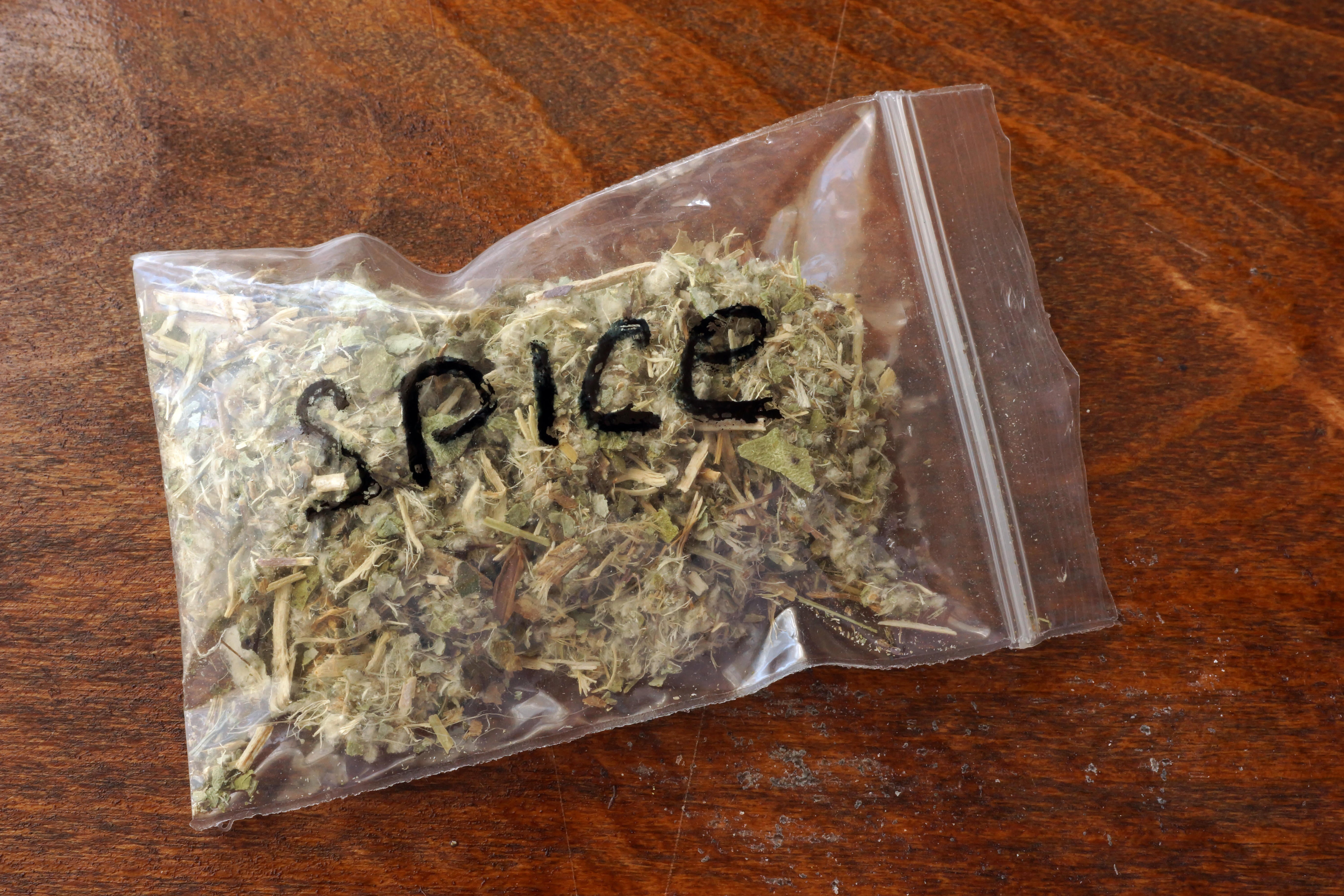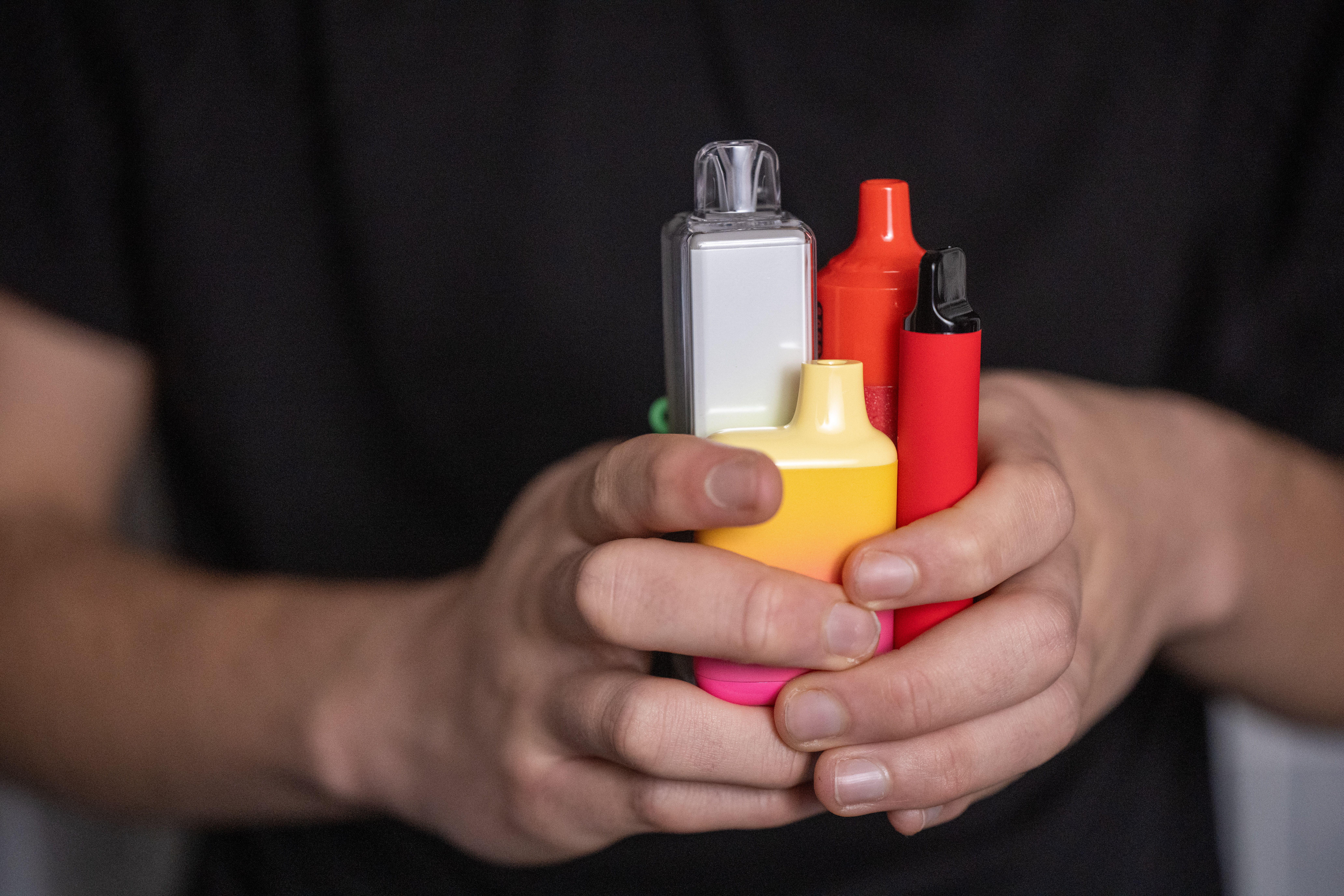
Support truly
independent journalism
Our mission is to deliver unbiased, fact-based reporting that holds power to account and exposes the truth.
Whether $5 or $50, every contribution counts.
Support us to deliver journalism without an agenda.

Louise Thomas
Editor
Disposal vapes, with fruity flavours and bright packaging, have drawn in many young customers. But what many people don’t know is that some of these products have been laced with ‘Spice’ – the nickname for a lab-made street drug which is illegal in the UK.
Research published earlier this summer, which tested vapes confiscated in a number of schools across England, found 16.6% contained Spice.
“Synthetic cannabinoids, commonly referred to as ‘Spice’, are man-made drugs that are designed to act like the main psychoactive chemical in cannabis but can have more intense effects,” says Andy Harp, associate medical director at drug, alcohol and mental health charity WithYou.
“It’s becoming increasingly common for Spice to be found in vapes, edibles (e.g. gummies) and mixed with herbal cannabis,” adds Harp. “Spice can come in a number of forms including liquid or powder, but can also look like a usual batch of cannabis or THC oil, so it’s easier to use too much and experience unpleasant and harmful effects.”

Spice is illegal in the UK and is classified as a Class B drug under the Misuse of Drugs Act 1971.
The ingredients in nicotine-containing vapes are regulated under the Tobacco and Related Products Regulations 2016 in the UK, but these regulations do not cover illegal THC products.
“There are regulatory controls on e-cigarettes and refill liquids that contain nicotine only, that are purchased from reputable suppliers,” explains Harp. “However, it’s important to flag that there are many brands of e-cigarette and vapes that can be purchased on the black market and which may not be regulated.

“In addition, because THC vapes are not sold legally in the UK, the ingredients used in them and their sales are not regulated,” adds Harp. “This means that harmful ingredients, including spice, or other dangerous drugs can be present.”
Identifying a Spice-laced vape can be challenging too as they don’t tend to look, smell or taste different to normal vapes.
What affects can Spice have?
This Class B drug can be very addictive and difficult to give up.
“Spice is highly addictive due to the body’s quick tolerance to Spice and synthetic cannabinoids,” explains Dr Rachael Molitor, a chartered psychologist and lecturer at Coventry University specialising in process and behavioural addictions.
“Due to the rise in dopamine, the unpredictable nature of the drug makes it difficult to gauge tolerance, meaning people may be taking more and more each time to get the same effect. This can quickly escalate into dependence.”
The mental and physical impacts of Spice can vary from user to user, but the drug is designed to mimic the effects of cannabis. “In the immediate term, some users may experience effects such as feeling giggly, sleepy, or dizzy,” says Harp.
However, there have also been some concerning cases of more severe side-effects. “Spice can also cause extreme drowsiness, panic attacks, irregular heart rhythm, seizures and an inability to speak or move normally,” warns Harp. “Prolonged use can contribute to the development of mental health conditions, such as paranoia, dissociation, and psychosis.”
Molitor adds: “Due to the period of brain maturation, adolescents are particularly susceptible to risky behaviours, including drug use and vaping.
“With these challenges, lacing vapes with Spice can create a cascading effect of vaping and drug use in the younger generation. It can also have effects on cognitive function, emotional regulation, and overall wellbeing.”
What should I do if I’m concerned my child is addicted to Spice vapes?
If you suspect your child is addicted to Spice, seeking help and advice from a professional, sooner rather than later, is vital.
“If you are worried about your child, WithYou has a young person’s webpage which will direct you to your local young person’s service, and you can talk to a trained advisor confidentially by using our free webchat service on our website,” advises Harp. “If your child is unwell, seek help urgently through your GP or hospital.”







